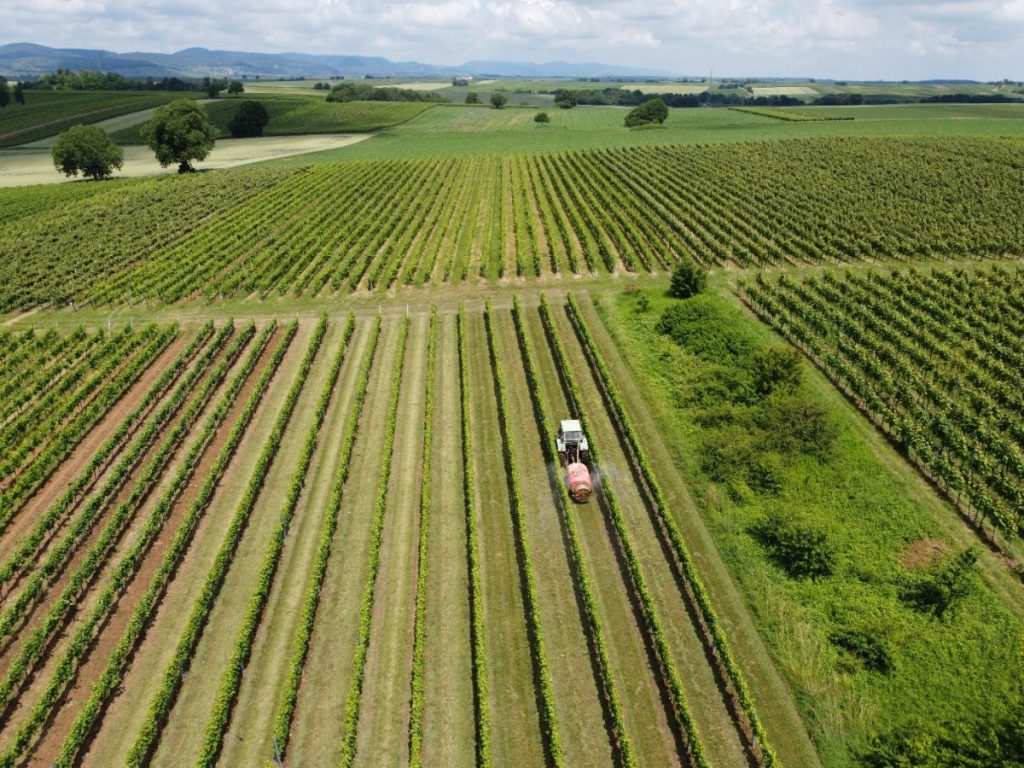In this blog post Carsten Brühl provides the background for their letter to Trends in Ecology and Evolution (TREE) entitled The rejection of synthetic pesticides in organic farming has multiple benefits.
With evident biodiversity declines in plants, insects, amphibians, bats, birds and small mammals in agricultural landscapes it is clear that farming practice and landuse need to change to stop the decline and restore biodiversity. Conversion from high-input conventional to organic farming has been shown to be a vital option to perform this change. However, in a recent opinion paper in TREE with the title Beyond organic farming – harnessing biodiversity-friendly landscapes Teja Tscharntke and his co-authors Ingo Grass, Thomas Wanger, Catrin Westphal and Péter Batáry challenge the evaluation of organic farming as the fundamental alternative to conventional farming for restoring biodiversity in agricultural landscapes. Besides raising aspects that diversifying cropland and reducing field size will increase biodiversity, in this discussion Tscharntke et al. claim that banning synthetic pesticides in organic farming has only limited benefits for biodiversity. Moreover, they claim that lower yields in organic farming would lead to an enlargement of cropping area and therefore additionally decline the biodiversity of former non-crop areas. In their view the impact of structural heterogeneity by increasing the percentage of semi-natural habitats in the landscape and reducing fields size is the main measure to increase biodiversity and not the reduction of synthetic pesticide use by implementing organic farming. This evaluation was mainly based on an assessment of aboveground terrestrial organisms. However, studies demonstrate that synthetic pesticides have also numerous direct and indirect effects on the biodiversity and functioning of aquatic and soil organisms.

In our reply, written by Johann Zaller from University of Natural Resources and Life Sciences in Vienna, Matthias Liess from Helmholtz Centre for Environmental Research in Leipzig and Jörn Wogram from the Federal Environmental Agency (UBA) in Dessau and myself, we clarify that the use of synthetic pesticides in conventional farming has drastistic effects on biodiversity overlooked by Tscharntke and co-authors. We advocate that manyfold effects of synthetic pesticides need to be accounted for in a more holistic risk assessment also comprising impacts on human health and economic costs for e.g. cleaning of contaminated lakes, streams, ground and drinking water or the compensation for contaminated organic fields and nature conservation areas through pesticide drift. We also argue that an establishment of organic farming on landscape scale will most likely show higher biodiversity benefits than measured so far on small plots. Investment in the development of organic farming and improvement of practical tools can also result in a closure of the yield gap (which is less pronounced in long-term studies anyway). Further arguments on benefits of organic farming practices were recently also presented in a reply to Tscharntke et al. by Karin Stein-Bachinger, Stefan Kühne, Moritz Reckling and Sara Preißel (see below).
The EU farm to fork strategy includes promising concepts to increase biodiversity in agricultural landscapes, aiming for an increase of organic production area to 25% and a reduction of use and risks of synthetic pesticide by 50%. We need to develop an approach to reduce the widespread use of synthetic pesticides in our environment. We believe that organic farming is certainly a viable approach that allows us to reach this target until 2030.
By the way, in case you are wondering why we only addressed the synthetic pesticide misconception in our reply: Journal guidelines only allowed us 800 words.
Read it here: Carsten A. Brühl, Johann G. Zaller, Matthias Liess, Jörn Wogram The rejection of synthetic pesticides in organic farming has multiple benefits.
The opinion: Teja Tscharntke, Ingo Grass, Thomas C. Wanger, Catrin Westphal & Péter Batáry: Beyond organic farming – harnessing biodiversity-friendly landscapes. Trends in Ecology and Evolution. https://www.cell.com/trends/ecology-evolution/fulltext/S0169-5347(21)00183-X
The Tscharntke et al. opinion explained in an interview (in German, Topagrar): Uni Göttingen: “Kleinräumige Anbauflächen schaffen mehr Biodiversität”
A reply by Karin Stein-Bachinger, Stefan Kühne, Moritz Reckling & Sara Preißel (in German, Topagrar): Ökolandbau schafft nicht nur mehr Biodiversität, sondern erbringt eine Vielzahl weiterer Umweltleistungen.
